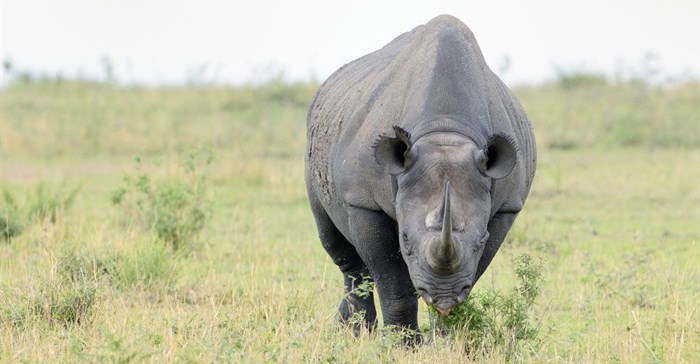The Department of Environmental Affairs has urged community members to assist the police and conservation authorities to combat rhino poaching.
“Community members are the eyes and ears of the police. They are the people who hear or even know about illegal activities such as wildlife crime and rhino poaching,” the department said.
The call follows the recent arrest of six suspected rhino poachers at a guesthouse in Pongola, KwaZulu-Natal.
“The arrest is an excellent example of how information from the community can result in positive action and thus spare more rhino from being poached,” the department said in a statement.
The suspects, Vincent Mathothe (42), Hloniphani Khumalo (34), Mhlekiswa Dlamini (47), Florence Lubisi (39), Mogala Ragolane (53), and Frans Tshabangu (48) appeared at the Pongola Magistrates Court earlier this month. They were denied bail and remain in custody until their next court appearance.
During the arrest, a rifle, live ammunition, hunting knives and an axe were among the items confiscated.
Integrated Strategic Management of Rhinoceros Approach
The department said through the Integrated Strategic Management of Rhinoceros Approach, a number of notable successes in combating rhino poaching had been recorded.
By the end of August 2018, a total of 83 rhino had been poached in KwaZulu-Natal, a marked decrease compared to the same period in 2017, when a total of 183 rhino were poached in the province in the first eight months of last year.
“Communities remain an important part of the long-term sustainability interventions outlined in the Integrated Strategic Management Approach, as they are the first line of defence for animals and plants in the country’s protected areas.
“It is not only through the implementation of the government’s Integrated Strategic Management Approach and the commitment of the police and conservation authorities, and private rhino owners, that poaching has decreased. The role played by communities in alerting the authorities has proven important in combating rhino poaching,” the department said.
Coordinated efforts between the Hawks, SARS (South African Revenue Service) customs officials and Environmental Management Inspectors from the Department of Environmental Affairs and SANParks, have resulted in the dismantling of 35 rhino horn trafficking networks linking the transit countries of Swaziland, Mozambique, Namibia and Kenya to the end-user countries of China, Hong Kong and Vietnam.
“The Environmental Management Inspectors (Green Scorpions) of the department continue with their work at OR Tambo International Airport and assist SARS and SAPS with cases where illegally traded rhino horn have been detected. The Green Scorpions also play an important role in court proceedings, where they often testify in aggravation of sentence in rhino related cases,” the department said.
The Department of Environmental Affairs, through the Biodiversity Economy Strategy has also implemented a community rhino ambassador’s programme. Among the benefits of the biodiversity economy is that it provides an alternative income for communities through wildlife, eco-tourism and bioprospecting.
More than 1,350 environmental monitors deployed in hotspots
Meanwhile, more than 1,350 environmental monitors have been deployed in rhino poaching hotspots across the country to assist with environmental protection.
The department said these environmental monitors are being further empowered to become rhino ambassadors in rhino poaching hotspots. The rhino ambassadors receive training in the importance of conservation, environmental challenges and in ways of dealing with rhino poaching.
“The ambassadors are members of local communities living adjacent to national parks and game reserves and interact directly with their community to raise awareness and educate people about alternatives to poaching, and the importance of ending poaching,” the department explained.
Guidelines for restorative justice programme
The department has also developed technical guidelines on the implementation of a restorative justice programme, which is aimed at ensuring that rhino poachers become either rhino ambassadors or perform community service.
Members of the public can report any suspicious activities related wildlife to the department’s environmental crime hotline at telephone number 0800205005 or to the SAPS number 10111.




































